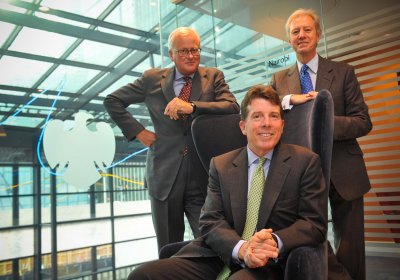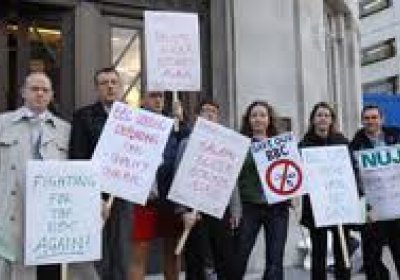The deepest cuts to Britain’s public spending since World War II were announced in October. At the same time, it was revealed that some of the nation’s biggest corporations and richest people were using legal loopholes to avoid paying tax.
The treasurer in the Conservative Party-Liberal Democrat coalition government, Conservative MP George Osborne, announced that £81 billion would be slashed from public spending including £7 billion in welfare cuts.
Britain
In 2009, more than a 100 activists were arrested in a swoop on a community centre in Nottingham in an operation involving hundreds of police.
They were alleged to be planning to close down Ratcliffe-on-Soar power station. It was revealed that one of the organisers of the alleged protest, Mark Stone, was an undercover cop who had tipped off the police.
Stone was unveiled after his partner found a passport in his real name of Mark Kennedy. He was confronted by Camp for Climate Action activists and confessed all.
Renowned investigative journalist and film maker John Pilger interviewed Wikileaks' editor-in-chief about the “war on WikiLeaks” in response to the website “speaking truth to power”.
At last someone has dared to defend the oppressed people of the British banking community. Bob Diamond, chief executive of Barclays bank, who himself has to suffer the trauma of an £8 million bonus, said yesterday that the bankers’ “period of remorse and apology should be over”.
And you feel his pain, because the first words to cross your mind when you see a banker are “remorseful and apologetic”.
At first glance, you might have mistaken London’s packed streets on November 10 for a Mardi Gras carnival. There young faces and large grins, combined with incessant whistle-blowing, trumpet-blasting and drum-beating. All mixed together to form the din of student protest.
The noise took shape and all of a sudden burst from the centre of the crowd, picked up by everyone else: “No ifs, no buts, no education cuts” — the main chants of the 50,000 students marching forward from Westminster to the destination of the Milbank headquarters of the Conservative Party.
“Rise like lions after slumber/In unvanquishable number!/Shake your chains to earth, like dew/Which in sleep had fall’n on you/Ye are many —they are few.”
These days, the stirring lines of Percy Shelley’s “Mask of Anarchy” from 1819 may seem unattainable. I don’t think so.
Shelley was both a Romantic and political truth-teller. His words resonate now because only one political course is left to those who are disenfranchised and whose ruin is announced on a British government spreadsheet.
In what Sky News described as one of the largest demonstrations to hit London streets in decades, tens of thousands of students, teachers, staff members and their supporters rallied on November 10 in opposition to the new Conservative-led government’s plan for tuition increases and cutbacks at Britain’s colleges.
Organised by the National Union of Students (NUS) and the University and College Union (UCU), the demonstration drew students from across the country for a march through central London, during which students occupied the Conservative Party headquarters.
The Conservative Party, or Tories, has never really forgiven the British working class for demanding and winning the creation of the “welfare state”. Gains won included such things as free health care, council homes at affordable rents, and care for the elderly and vulnerable.
From the Tories’ point of view, these are all things individuals should sort out for themselves. The modern state should provide the same level of social protection as was available to Queen Victoria’s subjects in the 19th century.
At least five Vodafone stores were closed in central London on October 30 by protests, TheGabber.org said that day. The protests were against the British government’s alleged decision to give companies, such as Vodafone, huge tax breaks of about £6 billion at a time when ordinary people are having their benefits cut or taken away.
British rail unions branded Transport for London (TfL) “barefaced liars" after its management attempted to claim minimum disruption during a 24-hour strike on November 3.
London Underground services were crippled by strike action called by the National Union of Rail, Maritime and Transport Workers (RMT) and Transport Salaried Staffs' Association (TSSA) over safety-critical job cuts.
All 11 of the London’s Tube lines were hit by the walkout. The action was the latest in a series of strikes over plans to axe up to 2000 jobs, including 800 station staff.
BBC services were severely disrupted after a 48-hour walkout on November 5 and 6 by thousands of media workers. MorningStarOnline.co.uk said on November 5 the workers were fighting the corporation’s “pensions robbery”, which would result in payouts being dramatically reduced.
The corporation’s director general Mark Thompson claimed the National Union of Journalists (NUJ) strike had no impact, but viewers and listeners tuned into BBC radio and TV channels to find the flagship program off air.
Thousands of pensioners descended on British parliament to reject the government’s pension cuts on October 27.
Angry pensioners pledged to escalate the fight against the cuts by joining spirited protests up and down the land against the government’s public spending cuts.
Nearly 1000 activists from the National Pensioners Convention (NPC) converged on Westminster to protest against vicious cuts in vital services and to demand a basic state pension of at least £171 a week.
- Previous page
- Page 44
- Next page









